‘It’s not about family farms’: ANZ defends ‘net zero emissions’ test for loans
ANZ chief executive denies that ‘net zero emissions’ test for loans meant a shift away from supporting farming families.

ANZ chief executive Shayne Elliott has defended his bank’s new climate policy, denying it meant the company would shift away from supporting farmers.
After heavy criticism from National Party MPs including Deputy Prime Minister Michael McCormack, Mr Elliott said the policy was focused on the top 100 carbon emitters and would “have no impact on the bank’s farmgate lending practices”.
“We remain firmly committed to supporting Australia’s farmers and producers, now and into the future,” Mr Elliott said. “This is about helping our major agribusiness customers run more energy and capital efficient operations. It’s not about family farms”.
ANZ CEO comments on climate change statementhttps://t.co/je4gGSkX7a pic.twitter.com/TqLDgD9YIX
— ANZ Newsroom (@ANZ_Newsroom) October 29, 2020
Mr Elliott said the measures outlined on Thursday are focused on supporting large institutional customers across all sectors in their transition to a low carbon business.
“I’m proud of the new policy and we’ve been having very constructive conversations with our customers. This essentially brings us into line with global best practice,” he said.
ANZ’s new climate policy will see it implement the most ambitious net zero emissions action of the big four banks, with climate change adopted as a condition of lending. It’s expected to increase pressure on farmers, construction firms and a range of companies to establish low-carbon transition plans by next year.
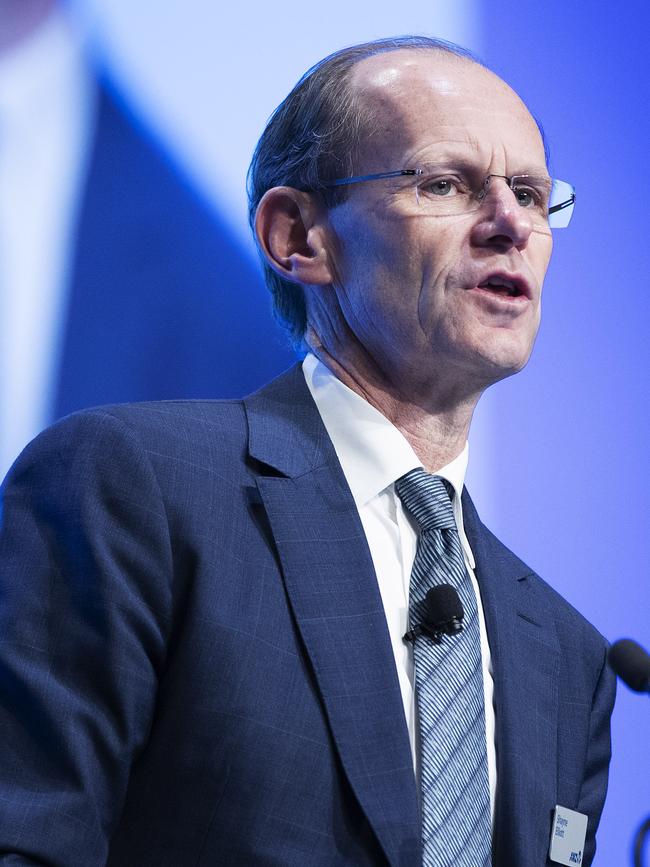
Announcing ANZ’s climate change statement on Thursday, the major lender said it would impose low-carbon deadlines for the agriculture, food and beverage, building, energy and transport sectors as it ramped up support for the Paris Agreement goal of net zero emissions by 2050.
Under its 10-year strategy, released to coincide with the bank’s annual result, ANZ said it would “move away from working with customers that don’t have clear and public transition plans”.
The bank’s step-up on climate change commitments and the release of target dates is considered a strategic move to match its competitors NAB and Westpac and respond to demands from key investors and shareholders.
Major companies including BHP, Qantas, NAB, Westpac and the Commonwealth Bank, as well as the Minerals Council of Australia, APPEA, the National Farmers Federation and the Business Council of Australia, have all rolled out major climate change strategies in the past two years.

‘Disgraceful, out of touch’: Littleproud
The decision by ANZ to tie funding with climate change action and shift from customers with exposure to thermal coal sparked a backlash from senior Nationals MPs and the agriculture sector.
Agriculture Minister David Littleproud said regional Australians should reconsider using banks that “impose crippling new carbon targets and penalties on Australian farming families and industries”.
The deputy Nationals leader on Thursday attacked the decision by ANZ to force carbon targets on “farming, resources, energy, and other regionally based sectors as a condition of lending”.
“While ANZ has confirmed with me this morning that this will not impact family farms, this policy is disgraceful,” Mr Littleproud said.
“Banks are not and should not try to become society’s moral compass and arbiter – the Australian people decide that by who they elect. We can’t let unelected, profit-driven financiers from Pitt Street dictate to society how to produce food and fibre or how we run our economy.
“Banks have been given a privileged position in our society and our economy and they shouldn’t interfere in markets but simply facilitate them with capital. That is their role and they should stick to it.”

Mr Littleproud said “when so much of our nation’s wealth is generated in the regions, penalising these industries and destroying livelihoods just to get the warm and fuzzies is pure insanity”.
“It shows just how out of touch ANZ is about how our regional communities live and work,” he said.
“The Nationals will review every policy lever at the federal government’s disposal — including the availability of deposit guarantees — to protect Australian farmers from these sorts of arbitrary boardroom ideological agendas.”
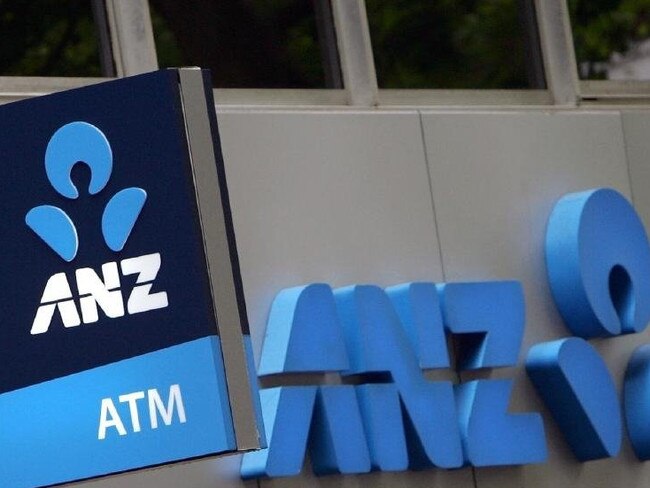
AgForce cattle president Will Wilson, a fourth-generation cattle producer who runs Calliope Station in central Queensland, said banks must help farmers thrive and not lock out primary producers. “If people see agriculture as the key to managing the environment … giving them a penalty is not the solution; it’s got to be about giving them incentives,” Mr Wilson said.
“If you’re going to not let people borrow to become better producers, you’re actually stopping environmental management which is not contributing towards a carbon-neutral practice.”
Mr Wilson said best practice has adapted and evolved over time, and that was driven by the market and economic landscape.
“Banks should incentivise growth and development,” he said. “By penalising people, they’re not incentivising growth; they’re going the other way. If people can’t borrow, they can’t improve.”

‘Too slow’: ACF
The Australian Conservation Foundation said withdrawal timelines in the ANZ climate policy were “too slow”, and criticised the bank for backing “climate-heating gas projects”.
ACF chief executive Kelly O’Shanassy praised the bank for taking “positive steps away from financing thermal coal” but warned “there is no room to continue burning coal, oil and gas in 2030”.
Ms O’Shanassy said the ANZ climate change statement acknowledged the importance of Australia transitioning to net zero emissions by 2050 but “does not align the bank’s investments to the Paris Agreement and a net zero target”.
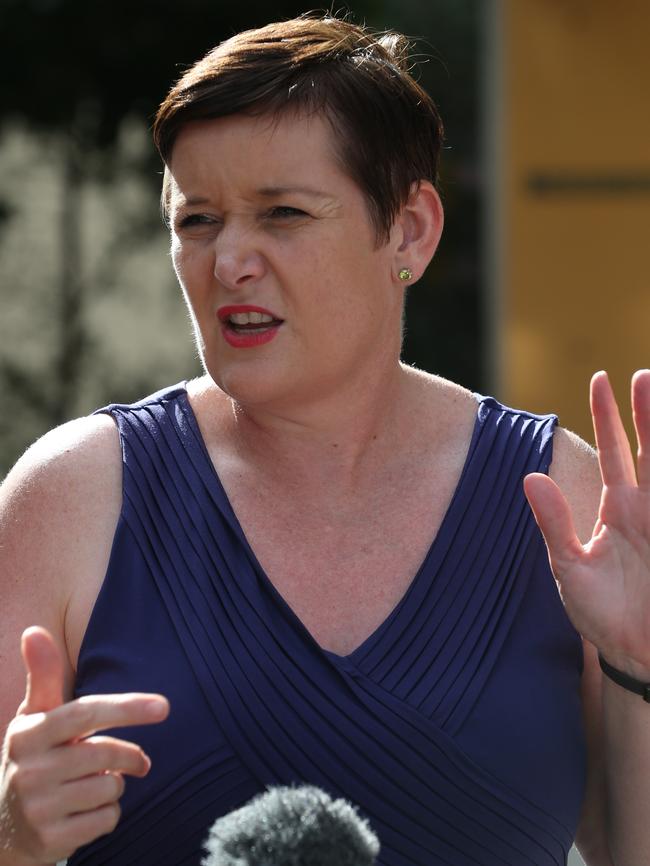
“The crippling drought and bushfires Australians endured over the last 12 months are a stark reminder that global heating is hitting our nation and economy hard and the clock is ticking on climate action,” Ms O’Shanassy said.
“Financing coal, gas and oil is fuelling climate disasters; Australia’s banks are responsible and must be accountable.
“We welcome ANZ’s commitment to stop direct lending to coal-fired power stations and thermal coal mines by 2030 and to not directly finance new or expansionary thermal coal projects.”
Ms O’Shanassy said the same rules should be applied to “all coal, oil and gas projects and companies”.
“Yet ANZ remains firmly invested in companies that it acknowledges have material exposures to thermal coal,” she said.
“The bank will continue to financially support companies with more than 50 per cent thermal coal exposure, despite acknowledging that companies that make more than 10 per cent of their revenue from thermal coal are materially exposed.
“While ANZ will encourage those customers to diversify and broaden their assets, it has refused to set a firm exit date for its investments in thermal coal companies. ANZ is the biggest lender to the gas and oil industry with an $8.2bn exposure to oil and gas as of September this year.”
ACF’s full statement on ANZ’s climate policy. https://t.co/t6QcHefoCL
— ACF (@AusConservation) October 29, 2020
ANZ, which is pledging to accelerate its own emissions reductions by sourcing 100 per cent of electricity from renewables by 2025, will fund and facilitate at least $50bn by 2025 to support “sustainable solutions to help our customer’s lower carbon emissions”. The bank will seek to inject funding into sustainable finance investments, including green buildings, low-emissions transport, reforestation, renewable energy and battery storage, carbon capture and storage, hydrogen technology, disaster resilience and climate change adaptation measures.
The ANZ climate change statement said its lower emissions strategy would “encourage and support 100 of our largest emitting customers in the energy, transport, buildings, and food, beverage and agricultural sectors to establish or strengthen their low carbon transition plans by 2021”.
ANZ will also engage with major oil and gas companies as part of its climate change engagement process.
To support the Paris Agreement goal of net zero emissions by 2050, ANZ will include climate risk as “a part of our everyday client engagement”.
“By 2030, we expect to have a deeper understanding of all our customers’ transition plans, and the implementation of those plans will be well advanced,” ANZ said. “Over time, we will move away from working with customers that don’t have clear and public transition plans.
“We understand the impact — positive and negative — our financing has on climate change. ANZ intends to act in a manner that supports new economic opportunities and helps people and communities thrive. We are keen to ensure that the risk of any shocks are minimised and that communities are not left behind.”
In addition to increasing access to affordable housing and promoting financial wellbeing, the ANZ climate change strategy would only finance the construction of large-scale office buildings if they were “highly energy-efficient” with five-star energy ratings.
Master Builders Australia chief executive Denita Wawn said “approaches to energy stringency should be market-driven but not come at a cost to average Australians”.
“We also need to be wary of unintended consequences for the economy or inadvertently driving up costs for those least able to meet them,” Ms Wawn said.
ANZ will increase lending to lower carbon energy by “further reducing the carbon intensity of our electricity generation lending portfolio by only directly financing low carbon gas and renewable projects by 2030”. It will also “no longer bank any new business customers with material thermal coal exposures” and engage with existing customers who have more than 50 per cent thermal coal exposure to support existing diversification plans.
The bank will not directly finance new coal-fired power plans or thermal coal mines, including expansions, with existing direct lending running off by 2030.
While major lenders shift away from thermal coal, The Australian on Wednesday revealed thermal coal imports into the Asia-Pacific region were predicted to surge to 1.1 billion tonnes a year over the next decade.
‘Wokeness over profits’: Canavan
Queensland Nationals senator Matt Canavan said the ANZ climate change plan would have a significant impact on farmers and the food and beverage sector.
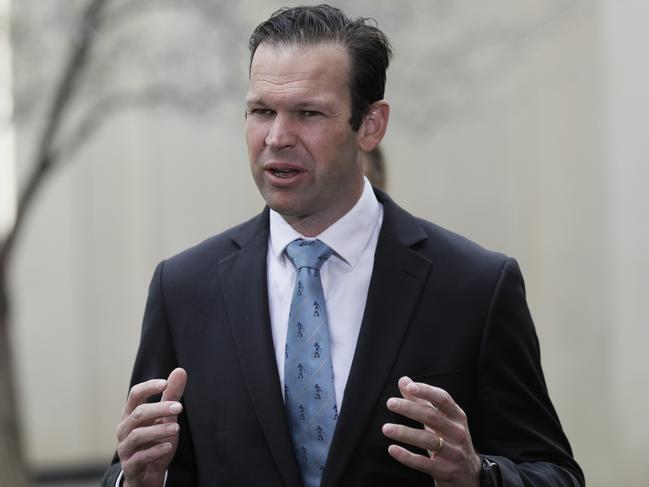
“Banks treated farmers like dirt during the drought and now they want to force higher costs on struggling farmers just so a bank can signal their virtue … These bank policies seem to force farmers to try and control the weather, not just worry about it,” Senator Canavan said.
“Why should the federal government guarantee deposits in banks that seem focused on wokeness over profits?”
Former Deputy Prime Minister John Anderson, who was previously chair of Eastern Star Gas, said “feeding people is in itself a moral value and that should not be oversighted”.
“If the ANZ really knows its oats, it will recognise that agriculture can make an unbelievable contribution and the clever thing to do would be to work with agriculture and not attack it,” Mr Anderson said.
“Beware unintelligent, bull-headed, ideological responses which result simply in making Australia cleaner but poorer and other countries richer but dirtier.”
‘Disappointing’: Pitt
Resources and Water Minister Keith Pitt said regional Australians should look around “for a better deal”, describing the ANZ climate change plan as “disappointing”.
“At a time when the rest of Australia is focused on economic recovery and getting back to work, it is extraordinary that ANZ’s priority is to play environmental activist. It is singling out industry sectors that continue to make a significant contribution to Australia’s economy – and ANZ’s wealth,” Mr Pitt said.
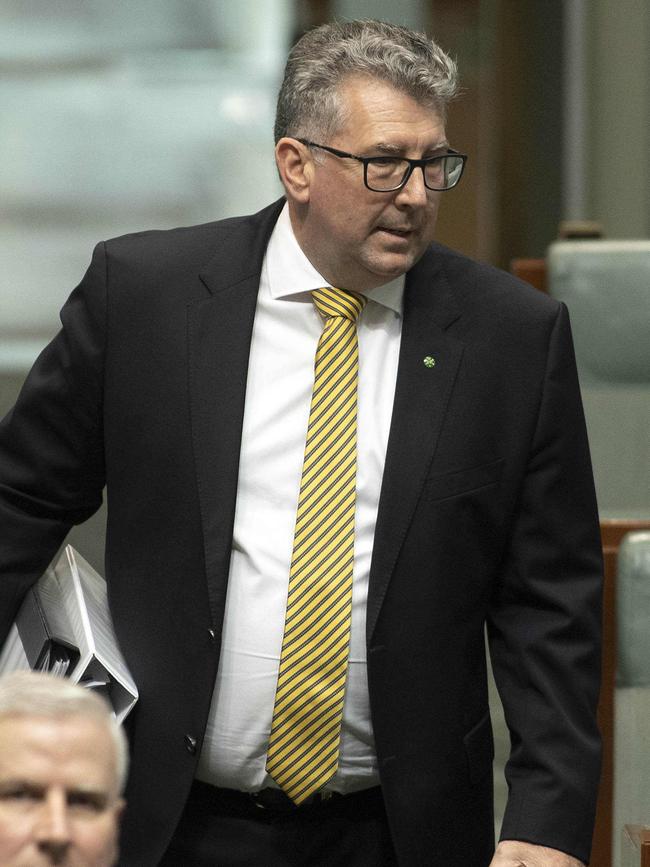
“I’d suggest ANZ would be better off focusing on its core business and help the 1.2 million Australians employed directly or indirectly in the resources sector buy their own homes and cars, and invest for their future. I would encourage Australians, particularly those in the regions who feel let down by ANZ’s decision, to look around for a better deal.
“Right now, the priority of banks should be winning back the trust of all Australians following the revelations of the banking royal commission, not playing eco-warrior.”
Nationals MP Barnaby Joyce suggested the ANZ “should lose international Unit Bank Credit because of their position on lending Ag and their climate policy”.
“They should also lose access to (the) RBA giving them access to funds at 0.33 per cent,” Mr Joyce said.
Deputy Prime Minister Michael McCormack said the ANZ climate plan was “sheer virtue-signalling”.
“These are the industries which produce the food we eat, keep the lights on, build our homes and transport our goods around the nation,” Mr McCormack said.
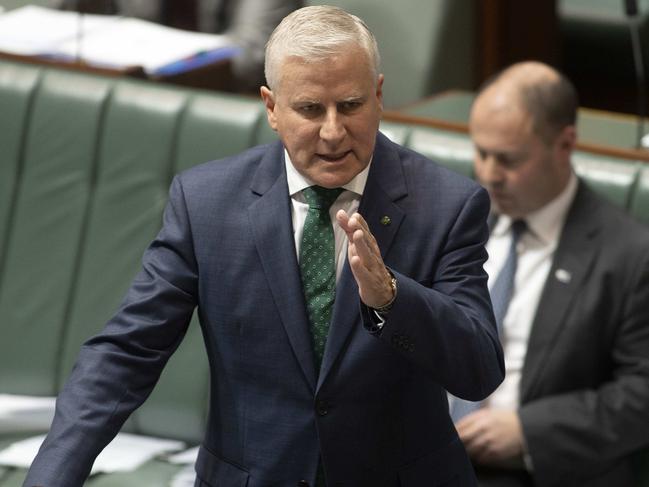
“Transport, fertiliser and fuel companies snared by these new rules could have no choice but to pass on costs along the agricultural supply chain, only to have farmers pick up the bill at the end.
“Imposing largely Euro-centric standards to satisfy shareholder activists while our nation recovers from a global pandemic is grossly unfair.”
The Nationals leader said it was a “complete over-reaction given Australia has beaten its Kyoto-era targets by up to 430 million tonnes”.
Greens leader Adam Bandt lauded the ANZ climate plan as a “good move”.
“Coal is the major cause of climate crisis and gas is as dirty as coal. And to have any chance of meeting our obligations under the Paris Agreement and keeping global warming well below two degrees we are going to manage to get out of coal and gas within a decade or two at most,” Mr Bandt said.
“ANZ has seen the writing on the wall. The news for coal continues to get worse.
It’s the right decision from ANZ. I hope others follow suit.”




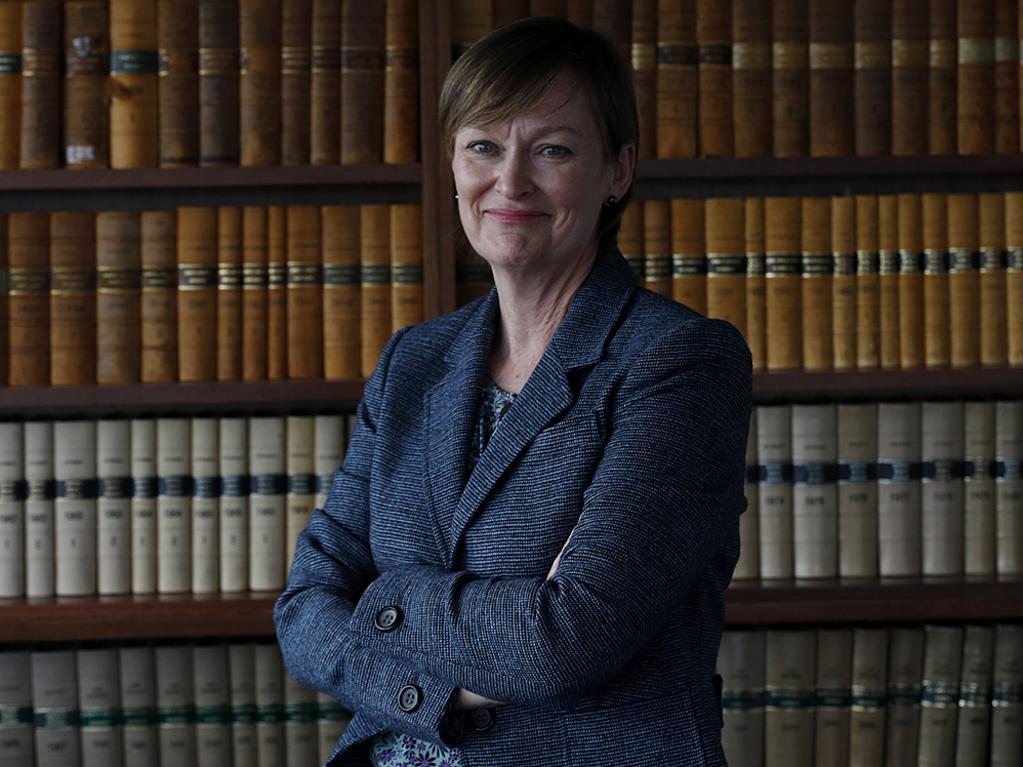


To join the conversation, please log in. Don't have an account? Register
Join the conversation, you are commenting as Logout